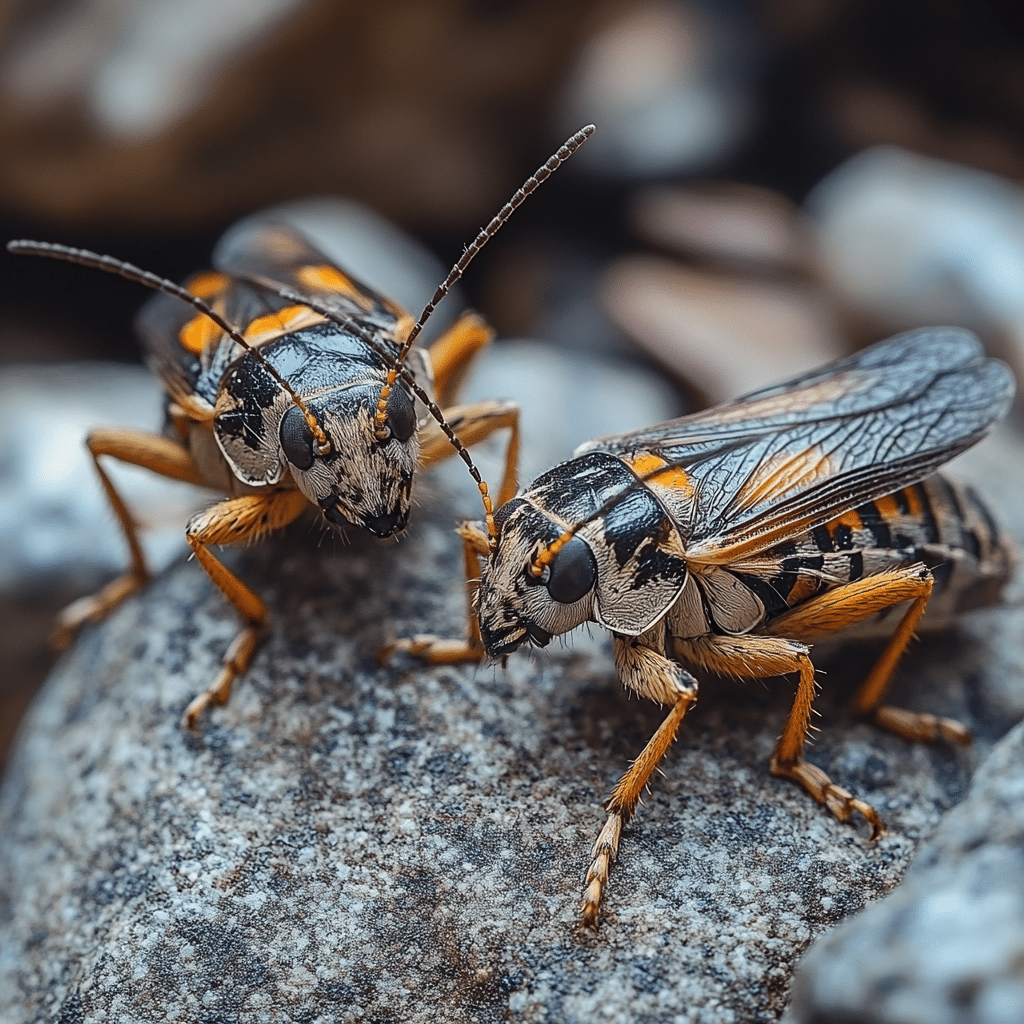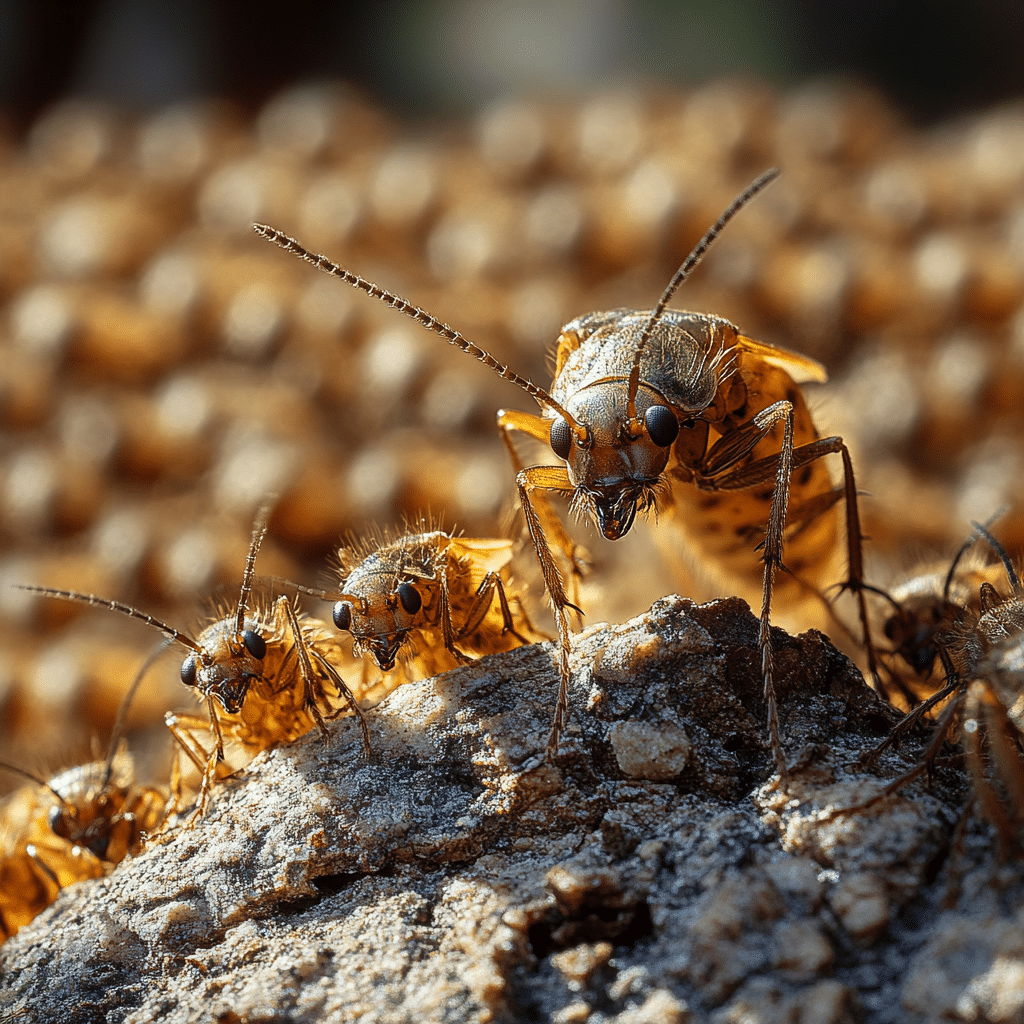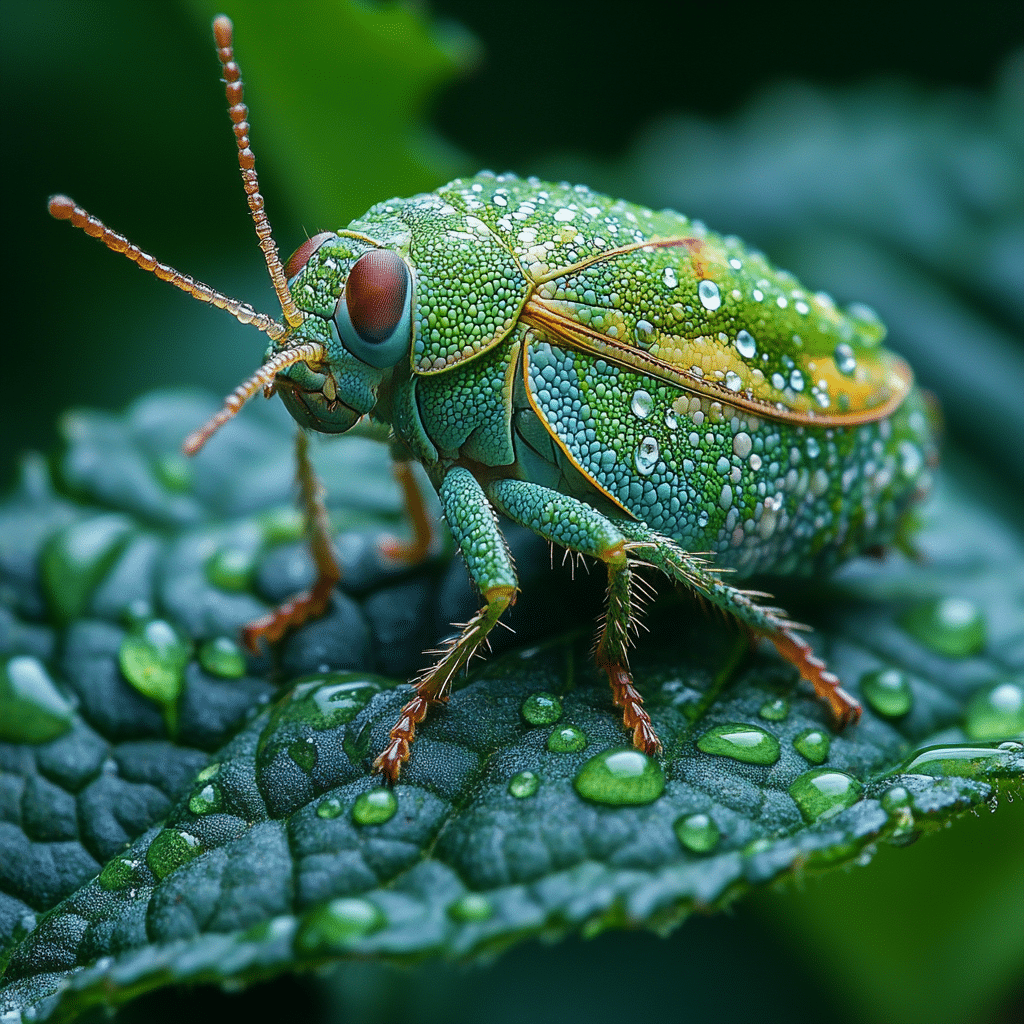In 2024, many homeowners are searching for DIY pest control methods that work effectively, without relying heavily on harsh chemicals. Most of us prefer to create a safe living environment for our families and pets, while also tackling pesky invaders like ants, cockroaches, and bedbugs. Let’s take a deep dive into some fantastic DIY pest control hacks that employ natural ingredients often found right in your home.
1. Top 7 DIY Pest Control Hacks You Need to Try
1.1 Vinegar as a Natural Repellent
Vinegar, especially apple cider vinegar, is a powerhouse when it comes to pest deterrence. Its potent acidity makes it unwelcoming for insects like ants and spiders. You can whip up a spray by mixing equal parts vinegar and water. Just give it a shake and spray it in high-traffic pest areas. It’s cheap, effective, and non-toxic—making it a great option for households with dogs.
1.2 Essential Oils: Nature’s Pest Busters
Essential oils aren’t just for freshening the air. They pack a punch against pests too! Oils like peppermint and tea tree are known for their lovely scents and their ability to repel bugs. According to a 2016 study in the Journal of Pest Management Science, peppermint oil hits home runs against spiders and cockroaches. Just mix a few drops with water in a spray bottle, and you’re set!
1.3 Garlic Spray Recipe
Garlic isn’t just for cooking; it’s a fantastic pest deterrent too! To whip up your very own garlic spray, blend two cloves of garlic with a cup of water. Strain the mixture, and then spray it around your home, particularly near doors and windows. This mixture acts as a repellent against mosquitoes and flies. After all, it’s hard to argue with something so simple and effective!
1.4 Coffee Grounds: Double Duty for Your Garden
Did you know coffee grounds could act as both fertilizer and pest repellent? They’re particularly effective against slugs and snails, which can wreak havoc in the garden. According to research from Penn State Extension, you can sprinkle used coffee grounds around your plants, offering your garden the nourishment it craves while keeping those slimy intruders at bay.
1.5 Soap and Water Solution
A plain old soap and water mixture can work wonders. This simple concoction suffocates pests like aphids, spider mites, and whiteflies. Mix just two tablespoons of dish soap into a quart of water, and you have an effective spray that many gardeners swear by. It’s a cheap trick that can save your plants from a lot of damage.
1.6 Diatomaceous Earth (DE) for Crawling Pests
Diatomaceous earth (DE) is a game changer in the DIY pest control realm. Made from fossilized algae, it serves as a non-toxic means to obliterate a variety of crawling pests. Sprinkle a light dusting in spots where you notice insect activity. An article from Clark Pest Control reveals DE’s effectiveness against troublesome critters such as bed bugs and cockroaches.
1.7 The Power of Hydroseeding
Though it isn’t a direct pest control method, hydroseeding nourishes strong, healthy lawns and gardens that naturally deter pests. A thriving garden encourages a balanced ecosystem, which can minimize pest infestations. As reported by the Florida Department of Agriculture, incorporating hydroseeding in your backyard can indirectly shield your home from annoying critters.

2. Evaluating Popular Pest Control Practices: Clark Pest Control vs. Fox Pest Control
Even with these DIY pest control methods, some homeowners might face persistent infestations, necessitating professional assistance. Let’s take a look at Clark Pest Control and Fox Pest Control, two companies embracing eco-friendly practices while offering pest management solutions.
2.1 Clark Pest Control: Eco-Friendly Pest Solutions
Established in California in 1947, Clark Pest Control focuses on sustainable approaches. Their services integrate modern techniques and green alternatives to minimize environmental impact. For instance, they employ treatments that prioritize indoor air quality to protect pets and family members alike. This makes them an excellent choice for households, particularly for those concerned about dogs’ respiratory illness.
2.2 Fox Pest Control: Customer-Focused Services
Founded in 2012, Fox Pest Control has rapidly earned a reputation for their customer-first policies. They offer free inspections, ensuring homeowners don’t incur unnecessary costs. Their follow-up services help to guarantee long-lasting pest solutions. Plus, they favor non-toxic methods, guaranteeing the safety of family members and pets—even those furry companions like Lady Tsunade!
3. Avoiding Common Missteps with DIY Pest Control
While DIY pest control can be highly effective, some common mistakes can lead to headaches instead of solutions. Here are a few pitfalls to steer clear of:

4. The Innovative Wrap-Up
Venturing into DIY pest control can be a rewarding journey, armed with simple techniques and basic household items. Whether deciding between eco-friendly pros like Clark Pest Control and Fox Pest Control or simply applying a homemade garlic spray, the options are abundant. The shift towards sustainable pest management is not merely a trend; it’s a commitment to creating safer, healthier living spaces.
Whether through hydroseeding or sprucing up your arsenal of tried-and-true remedies, you’re well on your way to crafting a pest-free home. Remember, it’s all about being creative and finding solutions that work for your unique circumstances. So why not start today? A pest-free home is just a few sprays away!
DIY Pest Control: Fun Facts and Trivia
A Splash of Pest Control History
Did you know that the practice of pest control dates back to ancient Greece? The Greeks were among the first to use aromatic plants to fend off pests—not too different from today’s DIY pest control techniques involving cinnamon or essential oils. Speaking of old entertainment, if you’re a fan of Jason Segel Movies And TV Shows, you might remember his quirky characters who sometimes found themselves tackling more than just life’s big problems, much like we tackle little critters invading our homes.
DIY Remedies in Action
A fun fact: many modern DIY pest control solutions are inspired by traditional remedies. For instance, did you know that a simple mixture of vinegar and water can deter ants? This simple blend is akin to the creative ensemble found in the Tropic Thunder cast, where each character brought a unique twist to the movie’s humor, much like each ingredient brings its own strength to your pest-fighting arsenal. And speaking of strength, let’s not forget how sometimes you might feel that something’s crawling on you and… oops! You might just feel like you’re gonna pee pants. That can happen in the heat of a bug battle!
The Game Plan
If you think about it, managing pests can be as strategic as a game of basketball—much like watching the Magic Vs Bulls games. You need the right playbook of tactics—whether that’s using diatomaceous earth for bed bugs or introducing beneficial insects to your garden. It’s a clever play that could keep your home safe and your green thumb thriving! Meanwhile, tackling tough characters like pests may remind you of the bold moves made in the political arena, like what Virginia Foxx does when addressing essential issues.
Expanding Your Knowledge
To truly excel at DIY pest control, don’t shy away from learning. Consider joining a public speaking Mentorship program to better articulate your DIY adventures or even share tips with neighbors. After all, passing on knowledge is all part of community spirit! Meanwhile, ensure your home environment is comfortable with systems like the Lennox air conditioner to create a peaceful retreat that pests won’t want to bother. And remember, even when things seem a bit bad Newz, you have a friendly arsenal of DIY recipes at your disposal for a pest-free life in no time!

How can I do pest control at home by myself?
You can tackle pest control at home by mixing everyday ingredients. Try making a natural pesticide with ten drops of citrus essential oil, one teaspoon of cayenne pepper, and one cup of warm water. Spray it on the areas where you’ve spotted pests, and it should help deter them.
What is the best DIY home insecticide?
For a DIY insecticide, a simple and effective solution is three tablespoons of liquid Organic Castile soap mixed with one ounce of Orange oil in a gallon of water. Just give it a good shake before use, and you’re set to tackle those pesky bugs.
What is the best home remedy to get rid of bugs?
If you want a solid home remedy, combine citrus essential oil with cayenne pepper and warm water to spray on bug-prone areas. This mixture is easy to whip up and can be handy for everyday bug battles.
What is the hardest pest to get rid of?
The hardest pests to get rid of are termites, bed bugs, and cockroaches. They hide well, reproduce quickly, and can often survive many typical extermination methods, making professional help a good idea for serious infestations.
Is it cheaper to do your own pest control?
Doing your own pest control can save you some bucks, but it might not always be as effective as hiring a pro. If you have a minor issue, DIY methods can work, but larger infestations often need expert attention to tackle them thoroughly.
What smell will keep cockroaches away?
Cockroaches can’t stand the smell of citrus and peppermint, so using essential oils from these can help keep them at bay. Spraying citrus essential oil around your home could discourage these critters from moving in.
What is the most powerful natural insecticide?
The most powerful natural insecticide might just be a blend of liquid Organic Castile soap and Orange oil. This combo not only helps eliminate bugs but is also safe for the environment, making it a solid choice for natural pest control.
What do professionals use for pest control?
Professionals often use a variety of methods, including chemical treatments, traps, and sometimes the same natural solutions you can make at home. Their expertise helps them pick the right strategy for the specific pest problem you’re facing.
What is the best natural DIY bug spray?
For a natural DIY bug spray, mix ten drops of citrus essential oil with cayenne pepper and warm water. Shake it well and you’ve got a great way to deter bugs without harsh chemicals.
What do bugs hate the most?
Bugs generally hate strong smells like peppermint, citrus, and even vinegar. If you can harness these scents in your home, it might stop those little critters from sticking around.
How to make natural pest control?
Making natural pest control is as easy as mixing household ingredients. Think along the lines of using citrus oils and cayenne pepper or soap mixed with Orange oil; these can be effective without needing harsh chemicals.
How do I permanently get rid of bugs in my house?
To permanently get rid of bugs, it’s best to identify and fix the issues that attract them. Clean your home regularly, seal up entry points, and use natural or professional pest control methods based on the severity of the infestation.
What kills bugs the most?
In terms of what kills bugs the most, a solid mixture of soap and water can be surprisingly effective. It clogs their breathing pores, leading to quick death, especially for soft-bodied insects.
What’s worse, fleas or cockroaches?
When comparing fleas and cockroaches, it’s often said that cockroaches are a more significant nuisance due to their hardiness and speed of reproduction. However, fleas can be more irritating because they bite and cause discomfort to pets and people alike.
What is the number one household pest?
The number one household pest is often considered to be cockroaches, thanks to their resilience and ability to quickly multiply, leading to widespread infestations if not handled quickly.
Do I need an exterminator or can I do it myself?
Deciding between an exterminator or DIY depends on the pest situation. If it’s minor and manageable, DIY can work; but for larger infestations, it’s usually best to bring in the experts who have the right tools and knowledge.
How is pest control done at home?
Pest control at home usually involves identifying problem areas, keeping things clean, sealing up gaps, and using sprays or traps. A mix of natural and sometimes commercial products can be applied for effective management.
Does spraying for bugs around the house work?
Spraying for bugs around the house can work well if you’re consistent and Target the right areas. Just keep in mind that it may not eliminate the problem entirely, especially if you have an infestation, so combining methods can be the best approach.
Do indoor pest repellents work?
Indoor pest repellents like essential oils or vinegar solutions can be effective, but their success often depends on the method and frequency of use. Keeping a clean environment coupled with these repellents can help keep pests at bay.





















